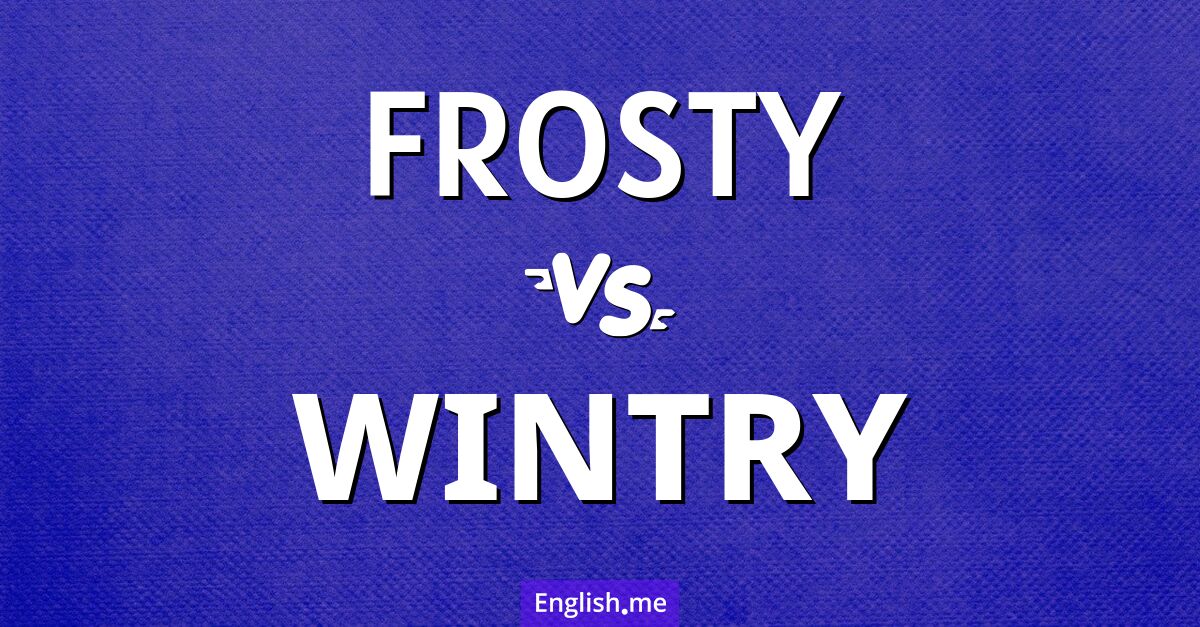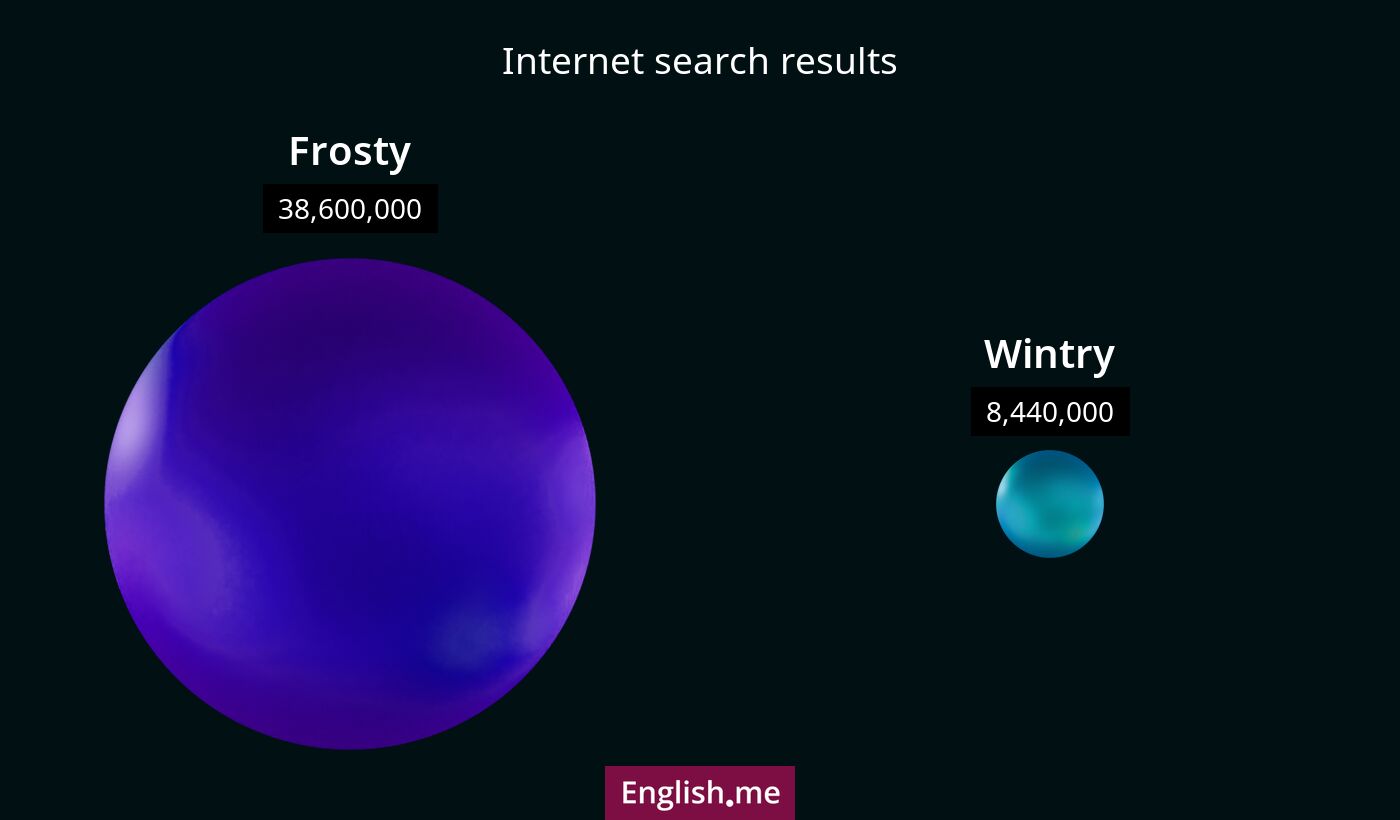"Frosty" vs. "wintry": exploring the chill in words
Reviewed and edited by  Lloyd Cooper 27/10/2024, 00:15
Lloyd Cooper 27/10/2024, 00:15
English.me team member

 What is similar?
What is similar?
Both "frosty" and "wintry" are adjectives related to cold weather and convey a sense of coldness. They can be used to describe conditions, appearance, or atmosphere associated with winter or low temperatures.
 What is different?
What is different?
"Frosty" specifically refers to a condition where frost is present, often implying icy or frozen moisture on surfaces. It can also be used metaphorically to describe a person's cold demeanor. "Wintry", on the other hand, relates more broadly to characteristics of winter, including cold, snow, and even winter's general atmospheric mood. "Wintry" is typically used to describe a broader range of situations typical of winter conditions.
 Which one is more common?
Which one is more common?

 Examples of usage
Examples of usage
Frosty- The grass was frosty in the early morning sun.
- She gave him a frosty glare after the argument.
- The frosty air bit at their cheeks as they walked outside.
- They admired the wintry landscape filled with snow.
- A wintry chill swept through the town.
- Her wintry smile didn’t match the warmth of her eyes.

 English
English español
español française
française italiano
italiano deutsche
deutsche 日本語
日本語 polski
polski česky
česky svenska
svenska Türkçe
Türkçe Nederlands
Nederlands